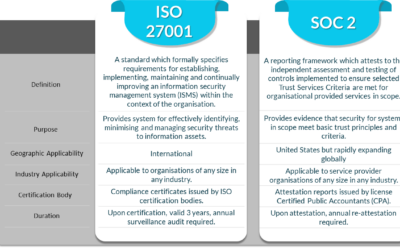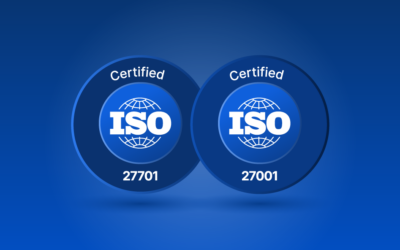From ransomware attacks to data breaches, the risks associated with handling sensitive data are more pressing than ever. In response, organizations must ensure that they have robust and effective systems in place to protect their information assets. This is where ISO 27001 consulting, the international standard for Information Security Management Systems (ISMS), becomes critical.
ISO 27001 consulting has become an essential service for organizations aiming to implement, maintain, or improve their ISMS to achieve compliance with the ISO 27001 standard. Through expert guidance, tailored advice, and best practices, ISO 27001 consultants help organizations safeguard their information, mitigate risks, and comply with global security requirements.
This article explores the significance of ISO 27001 consulting, how it benefits organizations, the role of an ISO 27001 consultant, and the steps involved in the consulting process.
What is ISO 27001?
ISO 27001 is the internationally recognized standard that provides a systematic approach to managing sensitive company information, ensuring it remains secure. The ISO 27001 standard outlines a framework for establishing, implementing, operating, monitoring, reviewing, maintaining, and improving an Information Security Management System (ISMS). An ISMS is a set of policies, procedures, processes, and systems designed to protect information from a variety of threats, ensuring its confidentiality, integrity, and availability.
ISO 27001 is applicable to all types of organizations—whether small, medium, or large businesses—across industries, such as finance, healthcare, retail, education, and government. Achieving ISO 27001 certification demonstrates an organization’s commitment to protecting sensitive data, enhancing its credibility, and complying with regulatory requirements, such as GDPR.
Why ISO 27001 Consulting is Important
Given the complexity of ISO 27001 implementation, many organizations seek the assistance of ISO 27001 consultants to guide them through the process. These consultants possess the necessary expertise and experience to help businesses manage their information security risks effectively, tailor their ISMS to meet specific needs, and navigate the complexities of certification.
1. Expert Knowledge and Guidance
ISO 27001 consultants are experts in the standard, equipped with in-depth knowledge of its requirements and how to apply them. The consultant’s guidance ensures that the organization is aligned with industry best practices for information security management. With their assistance, businesses can avoid common pitfalls and ensure a smooth and efficient certification process.
2. Cost and Time Efficiency
Achieving ISO 27001 certification involves numerous steps, including risk assessments, policy creation, system design, and staff training. Without the guidance of an experienced consultant, organizations may face delays and incur unnecessary costs as they try to figure out what works best for their specific environment. An ISO 27001 consultant can streamline the process, saving both time and money by efficiently identifying gaps in existing security measures and addressing them with targeted strategies.
3. Tailored Solutions

Every organization is unique, with distinct operations, data risks, and regulatory requirements. A one-size-fits-all approach to information security may not be effective in protecting critical assets. ISO 27001 consultants work closely with businesses to tailor their ISMS to meet their specific needs and priorities. Whether dealing with healthcare data, customer information, or intellectual property, the consultant ensures the organization’s security measures are both robust and scalable.
4. Continuous Support and Improvement
ISO 27001 certification is not a one-time event—it requires continuous monitoring, auditing, and improvement. Consultants provide ongoing support to ensure that the ISMS is consistently evolving and adapting to new risks and regulatory changes. This proactive approach helps organizations stay compliant and secure in the face of emerging threats.
5. Enhancing Reputation and Trust
In the era of data breaches and cyber threats, customers and stakeholders expect organizations to demonstrate a commitment to securing their data. ISO 27001 certification enhances a company’s reputation by providing assurance that the organization is effectively managing information security risks. An ISO 27001 consultant helps businesses understand the steps involved in obtaining and maintaining this certification, which can be a key differentiator in competitive markets.
The Role of an ISO 27001 Consultant
An ISO 27001 consultant is a professional who assists organizations in implementing and maintaining an Information Security Management System (ISMS) that aligns with the ISO 27001 standard. Their role varies depending on the organization’s needs but generally includes the following key responsibilities:
1. Gap Analysis and Risk Assessment
The first step in any ISO 27001 consulting process is a gap analysis to assess the organization’s current information security posture. This involves reviewing existing security policies, practices, and controls to determine if they meet the requirements of the ISO 27001 standard. The consultant identifies weaknesses or gaps that need to be addressed before implementation can begin.
The consultant also conducts a risk assessment, which is a critical part of the ISMS. This assessment involves identifying potential risks to the organization’s information assets, evaluating the likelihood and impact of those risks, and determining the appropriate controls to mitigate them. This risk-based approach ensures that resources are allocated effectively to address the most significant threats.
2. Designing the ISMS
Based on the gap analysis and risk assessment, the ISO 27001 consultant works with the organization to design an ISMS tailored to its specific needs. This includes determining the scope of the ISMS, selecting appropriate security controls, and establishing security policies, procedures, and documentation. The consultant ensures that the ISMS aligns with the organization’s objectives, legal requirements, and industry standards.
3. Implementation of Security Controls
An important part of the consultant’s role is helping implement the necessary security controls to manage information security risks effectively. These controls may involve technical measures (e.g., encryption, firewalls, access controls), administrative measures (e.g., training, policies, incident response), or physical controls (e.g., building security, access restrictions).
The consultant ensures that these controls are applied in a way that aligns with ISO 27001, and they often provide hands-on assistance with the implementation process.
4. Employee Training and Awareness
For an ISMS to be effective, it requires the active participation of all employees. ISO 27001 consultants help organizations develop training and awareness programs to ensure that all staff understand their roles and responsibilities in maintaining information security. These programs cover topics such as data handling, password management, phishing threats, and incident reporting. Regular training ensures that employees are equipped to protect sensitive information and follow best practices.
5. Conducting Internal Audits
Once the ISMS is implemented, ISO 27001 consultants conduct internal audits to evaluate the effectiveness of the system and identify areas for improvement. These audits ensure that the organization’s information security management practices are compliant with ISO 27001 requirements and functioning as intended.
Internal audits are crucial for identifying any weaknesses or areas where the organization may need to adjust its policies, controls, or practices. They provide a valuable opportunity for continual improvement.
6. Preparing for ISO 27001 Certification
ISO 27001 certification is awarded after a successful audit by an accredited certification body. ISO 27001 consultants work with organizations to ensure that they are fully prepared for the certification audit. This involves ensuring that all required documentation is in place, all security controls are operational, and all staff members are trained and aware of their roles in the ISMS.
The consultant typically acts as a liaison between the organization and the certification body, helping to facilitate the audit process and ensuring that any non-conformities are addressed before the final audit.
7. Ongoing Monitoring and Continuous Improvement
ISO 27001 requires organizations to continuously monitor and review their ISMS. The consultant helps the organization establish processes for ongoing monitoring, reviewing performance, and adapting to changes in the threat landscape. This includes conducting regular reviews, performing risk assessments, and updating policies and procedures as necessary.
Key Steps Involved in ISO 27001 Consulting
Achieving ISO 27001 certification is a structured process that involves several key stages. The steps involved in ISO 27001 consulting typically include the following:
1. Initial Consultation and Planning

The consulting process begins with an initial meeting between the ISO 27001 consultant and the organization’s key stakeholders. During this phase, the consultant will discuss the organization’s goals, the scope of the ISMS, and any specific challenges the organization faces. The consultant will also provide a roadmap for the entire certification process.
2. Gap Analysis and Risk Assessment
The consultant conducts a thorough gap analysis and risk assessment to identify areas where the organization’s current information security practices fall short of ISO 27001 standards. The results of the risk assessment inform the design of the ISMS and the selection of appropriate security controls.
3. Designing and Implementing the ISMS
The consultant works with the organization to design and implement the ISMS, including developing policies, procedures, and security controls tailored to the organization’s needs. This step involves significant collaboration with various departments to ensure that the ISMS is comprehensive and effective.
4. Training and Awareness Programs
The consultant helps the organization implement training programs to ensure that all employees understand their roles in the ISMS and are aware of security risks and best practices.
5. Internal Audits and Pre-Certification Assessment
Before the official certification audit, the consultant conducts internal audits to assess the effectiveness of the ISMS and identify areas for improvement. This ensures that the organization is fully prepared for the external audit.
6. Certification Audit and Support
The final step involves the certification audit by an external body. The consultant ensures that the organization is ready for this audit and supports the organization throughout the process to ensure a successful outcome.
Conclusion
ISO 27001 consulting is an essential service for organizations looking to implement an effective information security management system. Consultants bring invaluable expertise, guidance, and experience to help organizations design and maintain an ISMS that protects sensitive information, ensures regulatory compliance, and fosters a culture of security. By partnering with an ISO 27001 consultant, organizations can streamline the certification process, mitigate risks, and demonstrate their commitment to information security to clients, partners, and stakeholders. Achieving and maintaining ISO 27001 certification is a long-term commitment, but it ultimately provides significant benefits in terms of trust, reputation, and data security.



0 Comments